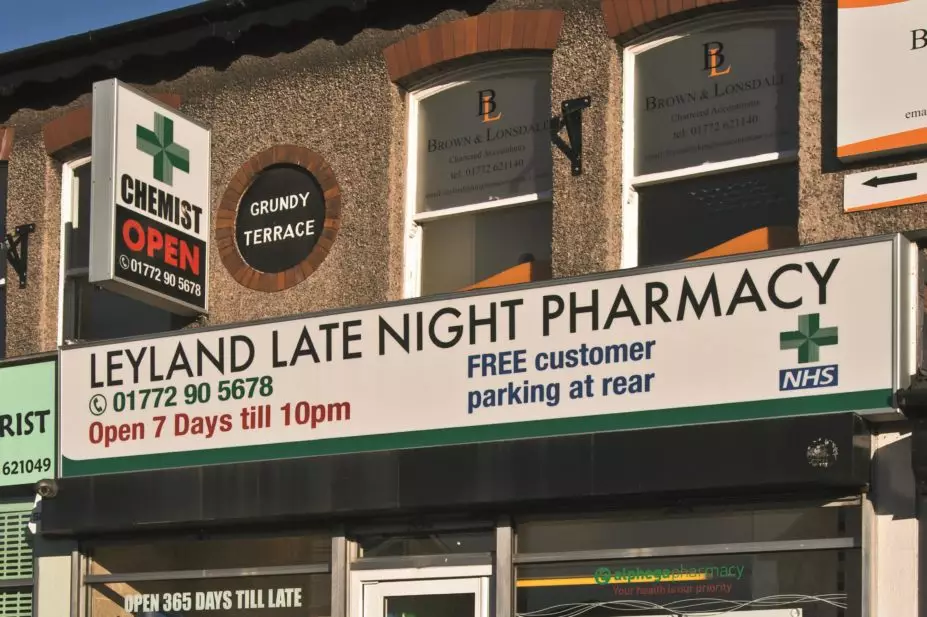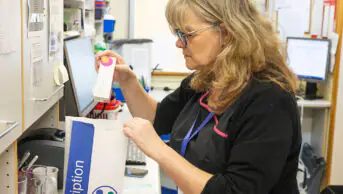
Sue Burton / Alamy Stock Photo
Providing out-of-hours access to emergency repeat medicines through community pharmacies has the potential to reduce the workload of other NHS service providers and will give peace of mind to patients who might otherwise skip medicines, according to a study published in BMJ Open[1]
.
The study, led by Hamde Nazar, a lecturer in pharmacy practice at the University of Durham’s school of medicine, pharmacy and health, evaluated the NHS-funded community pharmacy emergency repeat medication supply service (PERMSS), a four-month trial in which community pharmacies across the north east of England provided out-of-hours emergency repeat medications to patients.
“Pharmacists are legally permitted to provide emergency supplies of prescription-only medicines (POMs) at the request of the patient without a prescription,” explain the researchers. “[However,] the cost of an emergency supply for patients exempt from prescription charges means they often choose to access an out-of-hours service or emergency department.”
As part of the PERMSS study, patients who were exempt from prescription charges received their emergency supply free of charge while others paid the standard prescription charge.
The team evaluated 2,485 patients who visited 227 community pharmacies between 15 December 2014 and 7 April 2015. Patients were most likely to use pharmacies on Saturdays, with increased activity over national holidays as well. The study also found that older patients were more likely to use the PERMSS.
A survey of patients participating in the trial revealed that 93% of respondents found the PERMSS easier or much easier to access than other NHS out-of-hours services, such as accident and emergency, urgent care and walk-in centres and GP out of hours services. All patients surveyed would use the pharmacy service again in the future.
In the absence of the emergency supply service, half of those surveyed said they would have missed their dose until their GP was available, while another 46% would have used another out-of-hours service. Nearly two-thirds of patients (61%) said they would be prepared to pay for their medication.
The authors of the study estimated the cost of alternative out-of-hours services to the NHS as 37 times that of the community pharmacy service provided through the pilot scheme.
Commenting on the study, Alastair Buxton, director of NHS services at the Pharmaceutical Services Negotiating Committee (PSNC), says: “Patients who have run out of their regular medicines often use expensive, and sometimes inconveniently located, out-of-hours services to obtain them.”
Buxton adds that the study highlights the key role community pharmacy teams can play in providing more patient-centred care and reducing the pressures on urgent care services.
The PSNC wants a national emergency supply service commissioned through community pharmacies and estimates that this would bring a saving of around £45 per consultation to the NHS. “This is exactly the type of evidence we will be using as part of our negotiations on the future of the community pharmacy sector following the recently announced government proposals,” says Buxton.
Sandra Gidley, chair of the Royal Pharmaceutical Society’s English Pharmacy Board, says the study “is another indication of the viability of the community pharmacy service in relieving both pressure and significant cost on other areas of the NHS”.
“The pilot was well received by patients, particularly older people, who are more likely to need accessible support in managing their medicines close to where they live,” she adds.
References
[1] Nazar H, Nazar Z, Simpson J, et al. Summative service and stakeholder evaluation of an NHS-funded community Pharmacy Emergency Repeat Medication Supply Service (PERMSS). BMJ Open. 2016;6:e009736. doi:10.1136/bmjopen-2015-009736


